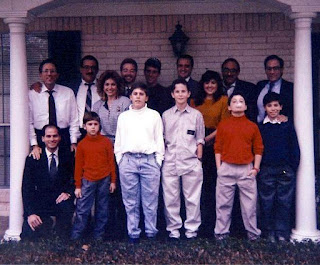Children,
obey your parents in the Lord, for this is right.
“Honor your father
and mother” (this is the first commandment with a promise), “that it may go well with
you and that you may live long in the land.” Fathers, do not provoke your children to anger,
but bring them up in the discipline and instruction of the Lord. (Ephesians 6:1-4
ESV).
The
key is in the second part of his instruction. By quoting the fourth
commandment, Paul is saying the principle is in “honoring” our parents. Again,
as with “love,” we must understand the word “honor.” The Hebrew word for honor in Scripture conveys the idea
of “weightiness” (Kabad). Parenthood
is an office that should hold a certain weight, receive a defined honor, just
for its mere existence. In His sovereignty, God provided weight, dignity,
and honor to the office of parenthood. RC Sproul explains, “God doesn't say,
'Honor your father and mother only when they're honorable.’ Theirs is a
position. They hold an office. And even if they are unworthy of that office,
the office itself is still to be honored.”
Jesus gives us an example. His relationship to His Father was perfectly
in alignment with the commandment. However, unlike the relationship between God
and Jesus, the Bible is filled with far less stellar examples of parent-child
relationships. Instead, it’s filled with stories of flawed humans like you and
me. Subconsciously we attribute super human powers to our parents when we are
young, and when those images come crashing down, their humanity is often too
much to bear. And yet there is no caveat in Scripture for this command. If
your parents are still living, it is not too late to honor them; and, for those
who are “children” practice honor without the demands of perfect from them.



No comments:
Post a Comment